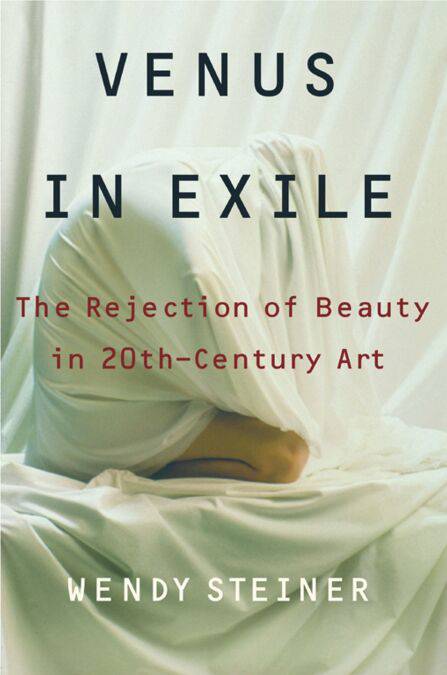
Nos liseuses Vivlio rencontrent actuellement des problèmes de synchronisation. Nous faisons tout notre possible pour résoudre ce problème le plus rapidement possible. Toutes nos excuses pour la gêne occasionnée !
- Retrait gratuit dans votre magasin Club
- 7.000.000 titres dans notre catalogue
- Payer en toute sécurité
- Toujours un magasin près de chez vous
Nos liseuses Vivlio rencontrent actuellement des problèmes de synchronisation. Nous faisons tout notre possible pour résoudre ce problème le plus rapidement possible. Toutes nos excuses pour la gêne occasionnée !
- Retrait gratuit dans votre magasin Club
- 7.000.0000 titres dans notre catalogue
- Payer en toute sécurité
- Toujours un magasin près de chez vous
11,17 €
+ 11 points
Description
Whereas previous eras had celebrated beauty as the central aim of art, the modernist avant-garde were deeply suspicious of beauty and its perennial symbols, woman and ornament, preferring instead the thrill and alienation of the sublime. They rejected harmony, empathy, and femininity in a denial still reverberating through art and social relations today. Exploring this casting of Venus, with all her charms, into exile, Wendy Steiner's brilliant, ambitious, and provocative analysis explores the twentieth century's troubled relationship with beauty.
Tracing this strange and damaging history, starting from Kant's aesthetics and Mary Shelley's horrified response in Frankenstein, Steiner untangles the complex attitudes of modernists toward both beauty and the female subject in art. She argues that the avant-garde set out to replace the impurity of woman and ornament with form -- the new arch-symbol of artistic beauty. However, in the process of controlling desire and pleasure in this way, artists admitted the exotic fetish objects of "primitive" cultures -- someone else's power and allure that surely would not overmaster the sophisticated modernist. A century of pornography, shock, and alienation followed, and this rejection of feminine and bourgeois values -- domesticity, intimacy, charm -- kept the female subject an impossible and remote symbol. Ironically, as Steiner reveals, the feminist hostility to the "beauty myth" had a parallel result, leaving Western society alienated from desire and pleasure on all sides.
In the course of this elegantly constructed and accessibly written argument, Steiner explores the cultural history of the century just ended, from Dada to Futurism, T. S. Eliot's Wasteland and Picasso's Les Demoiselles d'Avignon to Pumping Iron II: The Women and Deep Throat, Jean-Michel Basquiat and Outsider Art, Naomi Wolf and Cindy Sherman, Thomas Pynchon and Don DeLillo, ranging across art and architecture, poetry and the novel, feminist writing and pornography.
Only in recent years, Steiner demonstrates, has our culture begun to see a way out of this damaging impasse, revising the reputations of neglected artists such as Pierre Bonnard, and celebrating pleasure and charm in the arts of the present. By disentangling beauty from a misogynistic view of femininity -- as passive, narcissistic, sentimental, inefficacious -- Western culture now seems ready to return to the female subject and ornament in art, and to accept male beauty as a possibility to explore and celebrate as well. Steiner finds hints of these developments in the work of figures as varied as the painter Marlene Dumas, the novelist Penelope Fitzgerald, and the choreographer Mark Morris as she leads us to a rediscovery and a reclamation of beauty in the Western world.
From one of our most thoughtful and ambitious cultural critics, this important and thought-provoking work not only provides us with a searching analysis of where we have been in the last century but reveals the promise of where we might be going in the coming one.
Tracing this strange and damaging history, starting from Kant's aesthetics and Mary Shelley's horrified response in Frankenstein, Steiner untangles the complex attitudes of modernists toward both beauty and the female subject in art. She argues that the avant-garde set out to replace the impurity of woman and ornament with form -- the new arch-symbol of artistic beauty. However, in the process of controlling desire and pleasure in this way, artists admitted the exotic fetish objects of "primitive" cultures -- someone else's power and allure that surely would not overmaster the sophisticated modernist. A century of pornography, shock, and alienation followed, and this rejection of feminine and bourgeois values -- domesticity, intimacy, charm -- kept the female subject an impossible and remote symbol. Ironically, as Steiner reveals, the feminist hostility to the "beauty myth" had a parallel result, leaving Western society alienated from desire and pleasure on all sides.
In the course of this elegantly constructed and accessibly written argument, Steiner explores the cultural history of the century just ended, from Dada to Futurism, T. S. Eliot's Wasteland and Picasso's Les Demoiselles d'Avignon to Pumping Iron II: The Women and Deep Throat, Jean-Michel Basquiat and Outsider Art, Naomi Wolf and Cindy Sherman, Thomas Pynchon and Don DeLillo, ranging across art and architecture, poetry and the novel, feminist writing and pornography.
Only in recent years, Steiner demonstrates, has our culture begun to see a way out of this damaging impasse, revising the reputations of neglected artists such as Pierre Bonnard, and celebrating pleasure and charm in the arts of the present. By disentangling beauty from a misogynistic view of femininity -- as passive, narcissistic, sentimental, inefficacious -- Western culture now seems ready to return to the female subject and ornament in art, and to accept male beauty as a possibility to explore and celebrate as well. Steiner finds hints of these developments in the work of figures as varied as the painter Marlene Dumas, the novelist Penelope Fitzgerald, and the choreographer Mark Morris as she leads us to a rediscovery and a reclamation of beauty in the Western world.
From one of our most thoughtful and ambitious cultural critics, this important and thought-provoking work not only provides us with a searching analysis of where we have been in the last century but reveals the promise of where we might be going in the coming one.
Spécifications
Parties prenantes
- Auteur(s) :
- Editeur:
Contenu
- Nombre de pages :
- 304
- Langue:
- Anglais
Caractéristiques
- EAN:
- 9780743218801
- Date de parution :
- 23-10-01
- Format:
- Ebook
- Protection digitale:
- Adobe DRM
- Format numérique:
- ePub







